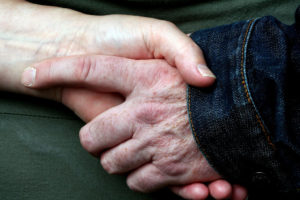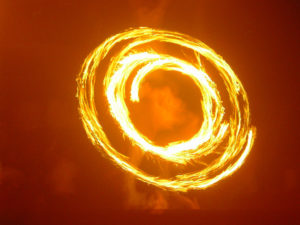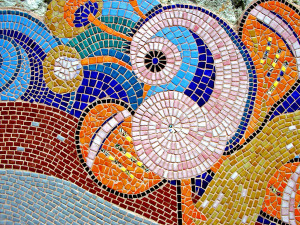Something New
January 3, 2017This month, try something new that you’ve never tried before! This can be something big or something small, but it should be something that is new to you. Here are some ideas:
- Try a new kind of food, especially a new fruit or vegetable.
- Learn how to say some words in a new language.
- Make a new friend or sit with a new person at the lunch table.
- Play a sport you’ve never played before.
- Listen to a different kind of music, or music from another part of the world.
- Learn about how children live in other cultures. There are many organizations that will match people up with pen pals in other countries. (Kids, ask your parents for help with this!)
- Learn the names of your mailman, grocery clerk, school crossing guard, or others who help you every day. You might even give them a thank you card to show them you appreciate them.
Ways to Wait
November 30, 2016It’s easy to get impatient when waiting for something exciting. Whether it’s waiting just a few minutes for school to end, waiting till dinner for your favorite meal, or waiting several days, weeks or even months for a special event, trip or holiday, it can be hard not to get impatient. (“Only 287 days till my birthday!” Sound familiar?)
When we’re impatient, our bodies and feelings might give us some clues. Some people notice they are breathing faster. Maybe you find your hands are balled up into fists, or you are using your pen to drum on the table. Maybe you can’t stop bouncing up and down on the balls of your feet or walking around the room. You might feel like you are in a big hurry, or get nervous.
These are all normal when we are waiting for something exciting or important, and sometimes waiting can be fun. But sometimes, we also wait for hard things, like news from a doctor or veterinarian about a loved one or pet who’s sick. And sometimes, we want to just relax!
Patience is kind of like a muscle, and we have to exercise it in order for waiting to be something we are good at doing. If you are feeling anxious about waiting or impatient, or if you want to practice for the next time you need to wait for something, here are eight tools you can practice and take with you for when waiting gets difficult.
-
Look up at the sky and imagine shapes in the clouds.
-
Smile at a friend or family member, or go and talk to them while you wait.
-
Count the number of freckles on your arm, leaves on the ground, change in your pocket . . . count whatever you like! It keeps your mind busy. You could also name (out loud or in your head) as many details of what you see in front of you, or the names of all the United States presidents that you know. What’s important is that you are giving your brain something different to think about.
-
Sing a song (out loud or in your head)
-
Making up a story, either by yourself or with friends.
-
Take ten slow easy breaths. For every breath, think of something you are grateful for.
-
Remember a favorite memory, and try to picture it in your head like a snapshot. What are all the details of the image?
-
Remember your five senses. What can you see and hear? Where are you standing or sitting? Feel the seat or ground below you, or touch what’s nearby is (if it’s safe to do so). Take a deep breath and stick out your tongue. Are there any smells or tastes where you are?
(These suggestions, adapted from A Fine Parent blog, are useful for folks of all ages who’d like to exercise their patience muscles. )
Meditation is another tool that can help us handle those in-between times when waiting is hard. And children as well as adults can benefit from this practice. Through meditation, kids as well as adults can better focus and be present in their lives, which can sometimes make waiting easier.
We Belong to Each Other
October 4, 2016The song “From You I Receive, To You I Give” is a beautiful articulation of how we serve one another in community. You can learn this song together as a family and sing it at bedtime, as a meal blessing, or any time you want to celebrate belonging together as a family.
Lyrics: 
From you I receive, to you I give.
Together, we share and from this, we live.
(To lead this song as a round, have the second group enter when the first group completes the line “From you I receive… “)
Listen as Rev. Lynn Ungar sings this song, and then join in!
(Words and music by Joseph and Nathan Segal)
In the Circle of Love
October 4, 2016The poet Edwin Markham, who was born in 1852, and became the poet laureate of Oregon from 1923-1931, was invited to read his poem “Lincoln, Man of the People” at the dedication of the Lincoln Memorial in 1922.
But UUs most often remember him for a tiny little poem that expresses his Universalist beliefs in love that is big enough to include everyone—and offers a radical understanding of belonging. The poem, called “Outwitted,” says:
He drew a circle that shut me out—
Heretic, rebel, a thing to flout.
But Love and I had the wit to win:
We drew a circle that took him in!
 Think about what the poem says: He wanted to shut me out and say that I didn’t belong. He said that my beliefs made me someone who had to be pushed away. But because I live from a place of love, I did something very clever and sneaky—I found a way to include and welcome him, even when he wasn’t willing to include or welcome me.
Think about what the poem says: He wanted to shut me out and say that I didn’t belong. He said that my beliefs made me someone who had to be pushed away. But because I live from a place of love, I did something very clever and sneaky—I found a way to include and welcome him, even when he wasn’t willing to include or welcome me.
That’s Universalism—love big enough to offer belonging to every human soul. Not because everyone is like us or even necessarily likeable, but because Love is big enough to include everyone.
Dance Break for Joy
July 6, 2016We can express joy in so many ways. One way is with our bodies. You might want to wiggle your fingers and toes. You might want to stretch like a cat or hop like a bunny, you might want to wrap a warm blanket around yourself. You might want to hug a friend, or wiggle in your chair.
Just like there are so many ways to express joy, there are so many ways to use your body to dance your joy! You can dance whenever you feel joyful. You can dance any way you like. And when you don’t feel very joyful, something magical might happen if you can dance anyway. It might even change the way you are feeling!
Send in the Clowns
July 6, 2016Most of us only see clowns in parades and circuses. But for refugees and people who cannot go back to their homes, there are not many parades or circuses, and the children who live in the refugee communities don’t get to see many clowns-or have a lot of fun in general. It’s a hard life for anyone, especially for children, but these clowns are clowning for a cause!
Clowns without Borders is a troupe of performers who visit refugee camps and displaced communities and perform for them. They juggle, they do magic tricks, they make everyone laugh and smile. For more than 20 years, these joyful folks have brought joy to the loves of people who have experienced great struggles and loss. They call it Resilience Through Laughter.
Why is this posted in the UU & You section of Family Quest? Because there are UUs participating in Clown Without Borders today! Here’s an interview with lifelong Unitarian Universalist Sarah Foster:
Sarah Liane Foster, a lifelong Unitarian Universalist, traveled as a professional clown with Clowns Without Borders to Haiti, Turkey, Colombia, Swaziland, and South Africa where children have experienced conflict and injustice. “Laughter is a critical way to heal trauma,” Sarah said. You can read more about Sarah’s story in the Spring 2016 Family pages of UU World as well!
Beautiful and Broken
March 1, 2016A mosaic is a kind of artwork that is made by creating a picture out of pieces of pottery. It’s a way that something broken can turn into something beautiful.
One way to play with the idea of a mosaic is to draw an abstract picture, full of color and shapes, but not necessarily of a particular thing like a cat or a robot. Then cut the picture up. Break it on purpose. Then glue the pieces onto a piece of construction paper, leaving just a little gap between each piece.
You will create a new, and maybe surprising, piece of art by taking the original drawing apart and putting it back together in a different form.
Whole, Not Broken
March 1, 2016Christopher Reeve had everything going for him. He was handsome and athletic and famous for playing Superman in the movies. He had a lovely family and plenty of money that he’d made as a movie star. Really, things could hardly have been better.
Until he was in a horse bock riding accident that damaged his spine and left him paralyzed below his neck. He couldn’t move his hands or feet, let alone play a superhero who could jump tall buildings in a single bound. He was, in a profound way, broken.
But in many other ways, he was deeply whole. He had a family who loved him and believed in him. And he found in his Unitarian Universalism a reminder that one way we can build wholeness for ourselves is by doing what we can to build wholeness for others.
So Christopher and his wife Dana dedicated themselves to trying to make life better for other people who had spinal cord injuries. They raised money to help people get things they needed like ramps and vans that could carry wheelchairs. And they raised money for research that might help people with spinal cord injuries.
Christopher Reeve eventually died from the complications of living with his injury, but his living taught a lot of people about what can be whole when things get broken.
The Fragile Art of Hospitality
February 1, 2016Podcast: Download (Duration: 13:03 — 12.0MB)
Subscribe: More
Mechthild of Magdeburg, a thirteenth-century mystic, once asked, “How shall we live?” Her answer provides a mantra of hospitality: “Be welcoming to all.” Read more →
Called to Hospitality
February 1, 2016Podcast: Download (Duration: 10:08 — 9.3MB)
Subscribe: More
 What does it mean to a Unitarian Universalist to be called to hospitality? And what or who is calling us? Read more →
What does it mean to a Unitarian Universalist to be called to hospitality? And what or who is calling us? Read more →
Love Larger
We rely heavily on donations to help steward the CLF, this support allows us to provide a spiritual home for folks that need it. We invite you to support the CLF mission, helping us center love in all that we do.
Support the CLF
Can you give $5 or more to sustain the ministries of the Church of the Larger Fellowship?
If preferred, you can text amount to give to 84-321
Latest Spiritual Reflection Posts
Latest Quest Monthlies
Weekly newsletter
About
Quest for Meaning is a program of the Church of the Larger Fellowship (CLF).
As a Unitarian Universalist congregation with no geographical boundary, the CLF creates global spiritual community, rooted in profound love, which cultivates wonder, imagination, and the courage to act.






